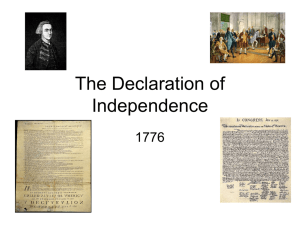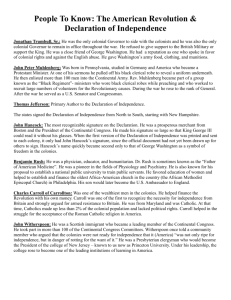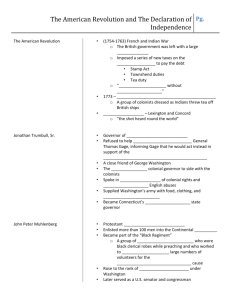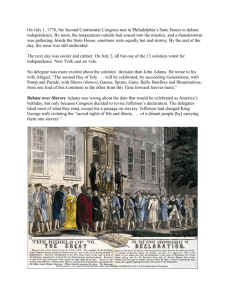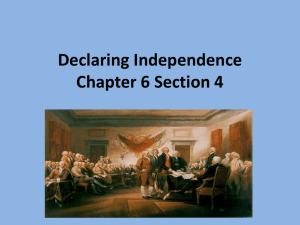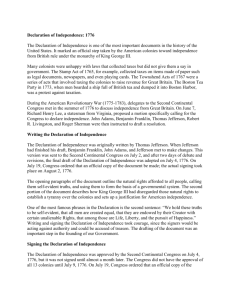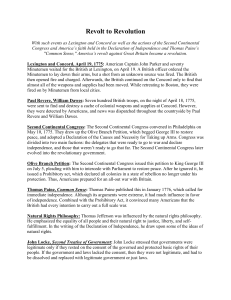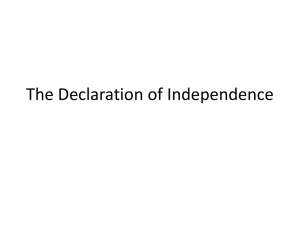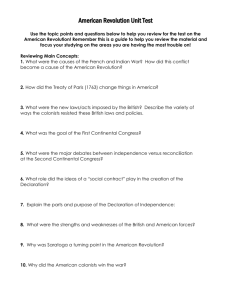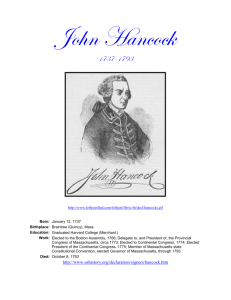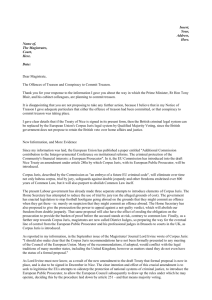Signing the Declaration of Independence
advertisement
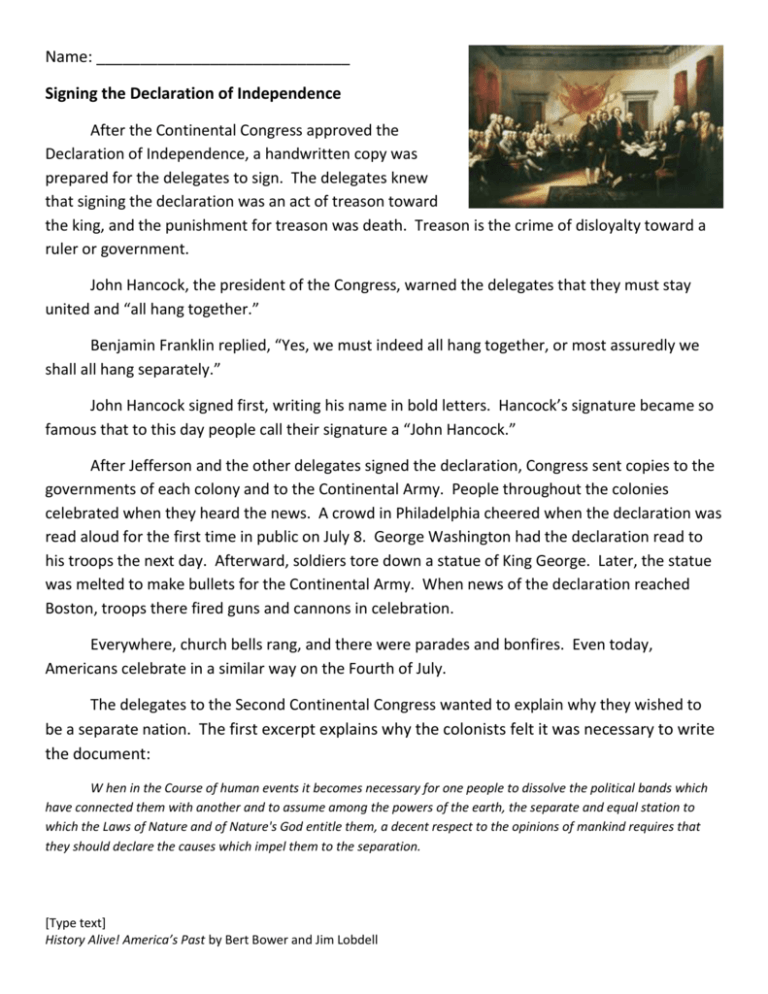
Name: _____________________________ Signing the Declaration of Independence After the Continental Congress approved the Declaration of Independence, a handwritten copy was prepared for the delegates to sign. The delegates knew that signing the declaration was an act of treason toward the king, and the punishment for treason was death. Treason is the crime of disloyalty toward a ruler or government. John Hancock, the president of the Congress, warned the delegates that they must stay united and “all hang together.” Benjamin Franklin replied, “Yes, we must indeed all hang together, or most assuredly we shall all hang separately.” John Hancock signed first, writing his name in bold letters. Hancock’s signature became so famous that to this day people call their signature a “John Hancock.” After Jefferson and the other delegates signed the declaration, Congress sent copies to the governments of each colony and to the Continental Army. People throughout the colonies celebrated when they heard the news. A crowd in Philadelphia cheered when the declaration was read aloud for the first time in public on July 8. George Washington had the declaration read to his troops the next day. Afterward, soldiers tore down a statue of King George. Later, the statue was melted to make bullets for the Continental Army. When news of the declaration reached Boston, troops there fired guns and cannons in celebration. Everywhere, church bells rang, and there were parades and bonfires. Even today, Americans celebrate in a similar way on the Fourth of July. The delegates to the Second Continental Congress wanted to explain why they wished to be a separate nation. The first excerpt explains why the colonists felt it was necessary to write the document: W hen in the Course of human events it becomes necessary for one people to dissolve the political bands which have connected them with another and to assume among the powers of the earth, the separate and equal station to which the Laws of Nature and of Nature's God entitle them, a decent respect to the opinions of mankind requires that they should declare the causes which impel them to the separation. [Type text] History Alive! America’s Past by Bert Bower and Jim Lobdell The second excerpt describes the rights all people should have. Please fill in the blanks with the words you have memorized from the song. We hold these _______________ to be self __________________ that all men are created ___________________ that they are endowed by their Creator with certain unalienable __________________ that among these are __________________, ______________, and the pursuit of __________________________. Directions: Choose the best answer. 1. What is the crime of disloyalty toward a ruler or government? A. Constitution B. Resolution C. Reason D. Treason 2. Who was the president of the second Continental Congress? A. George Washington B. John Hancock C. Benjamin Franklin D. Thomas Jefferson 3. Who said, “Yes, we must indeed all hang together, or most assuredly we shall all hang separately.” A. George Washington B. John Hancock C. Benjamin Franklin D. Thomas Jefferson 4. Who signed the Declaration of Independence in bold letters first? A. George Washington B. John Hancock [Type text] History Alive! America’s Past by Bert Bower and Jim Lobdell C. Benjamin Franklin D. Thomas Jefferson 5. Who did the Congress send copies to? A. The Continental Army B. The Indians C. The governments of the colonies D. The governments of the colonies and the Continental Army 6. When was the Declaration of Independence read aloud for the first time publically? A. July 4, 1776 B. June 7, 1775 C. July 8, 1775 D. July 8, 1776 7. What does the Declaration of Independence explain? A. Why America is a good country. B. Why slavery does not exist in America C. Why they wished to be a separate nation D. Why treason is wrong against the king [Type text] History Alive! America’s Past by Bert Bower and Jim Lobdell
